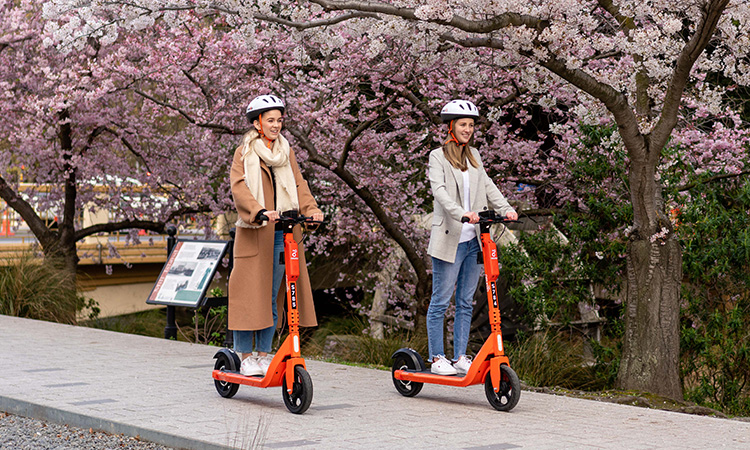Neuron Mobility releases report on e-scooter impact in New Zealand
- Like
- Digg
- Del
- Tumblr
- VKontakte
- Buffer
- Love This
- Odnoklassniki
- Meneame
- Blogger
- Amazon
- Yahoo Mail
- Gmail
- AOL
- Newsvine
- HackerNews
- Evernote
- MySpace
- Mail.ru
- Viadeo
- Line
- Comments
- Yummly
- SMS
- Viber
- Telegram
- Subscribe
- Skype
- Facebook Messenger
- Kakao
- LiveJournal
- Yammer
- Edgar
- Fintel
- Mix
- Instapaper
- Copy Link
Posted: 19 March 2024 | Intelligent Transport | No comments yet
Neuron Mobility’s study in New Zealand reveals strong support for helmet use, significant economic contributions to local businesses and a demographic shift with young women leading the rider count.


Credit: Neuron Mobility
Neuron Mobility has unveiled an extensive report shedding light on the transformative impact of e-scooters in New Zealand. Titled “Unlocking the Potential of E-Scooters in New Zealand: Supporting Prosperity and Accessibility,” the report delves into various aspects of e-scooter usage, including safety measures, economic contributions and gender dynamics.
Safety emerges as a paramount concern among New Zealanders, with 90% highlighting the importance of rider and pedestrian safety when using e-scooters. However, there exists confusion regarding helmet regulations, as 38% of respondents were uncertain about the legal requirements. Despite helmets being merely ‘strongly advised’ instead of mandatory, 80% of individuals deem them crucial for e-scooter riders. The report suggests that 74% of respondents advocate for mandatory helmet laws, while 55% call for rental companies to provide helmets and 55% stress the need for enhanced rider education.
Furthermore, Neuron’s study underscores the significant economic benefits accompanying e-scooter usage in New Zealand. Each Neuron e-scooter injects NZ $13,500 annually into local economies. Notably, over half of all e-scooter trips result in purchases from local businesses, with riders spending an average of NZ $38.50 per trip. A substantial 52% of trips culminate in purchases from nearby establishments, enriching local commerce. Moreover, e-scooters prove instrumental in stimulating the night-time economy, with 19% of trips occurring between 22:00 and 06:00.
The report also unveils a trend in e-scooter adoption, with young females leading the charge. In New Zealand, 70% of female riders fall within the 18-34 age bracket, surpassing the global average by 10%. This trend signifies a notable cultural shift towards e-scooter usage among young women. In addition, the study highlights the significant presence of riders with disabilities or mobility impairments, constituting 6% of Neuron’s user base. These findings underscore the imperative of ensuring accessibility and inclusivity within e-scooter initiatives.
With more than half of all trips (55%) serving as commutes to work or study, e-scooters have seamlessly integrated into New Zealand’s transport network. This surpasses the global average by a significant margin, indicating the pivotal role e-scooters play in daily transportation routines. Furthermore, 36% of trips replace car journeys, thereby reducing congestion and improving air quality.
Jayden Bryant, Genaral Manager of Australia and New Zealand for Neuron Mobility, said: “We’re delighted that the research shows Neuron’s e-scooters are boosting local economies and benefiting local businesses. They are providing an accessible transportation option for a diverse range of individuals, including those with disabilities or mobility impairments.”
Related topics
Accessibility, Air Quality, Micro-mobility, Mobility Services, Passenger Experience, Sustainable Urban Transport
Related modes
Bikes & Scooters
Related countries
New Zealand
Related organisations
Neuron Mobility
Related people
Jayden Bryant








